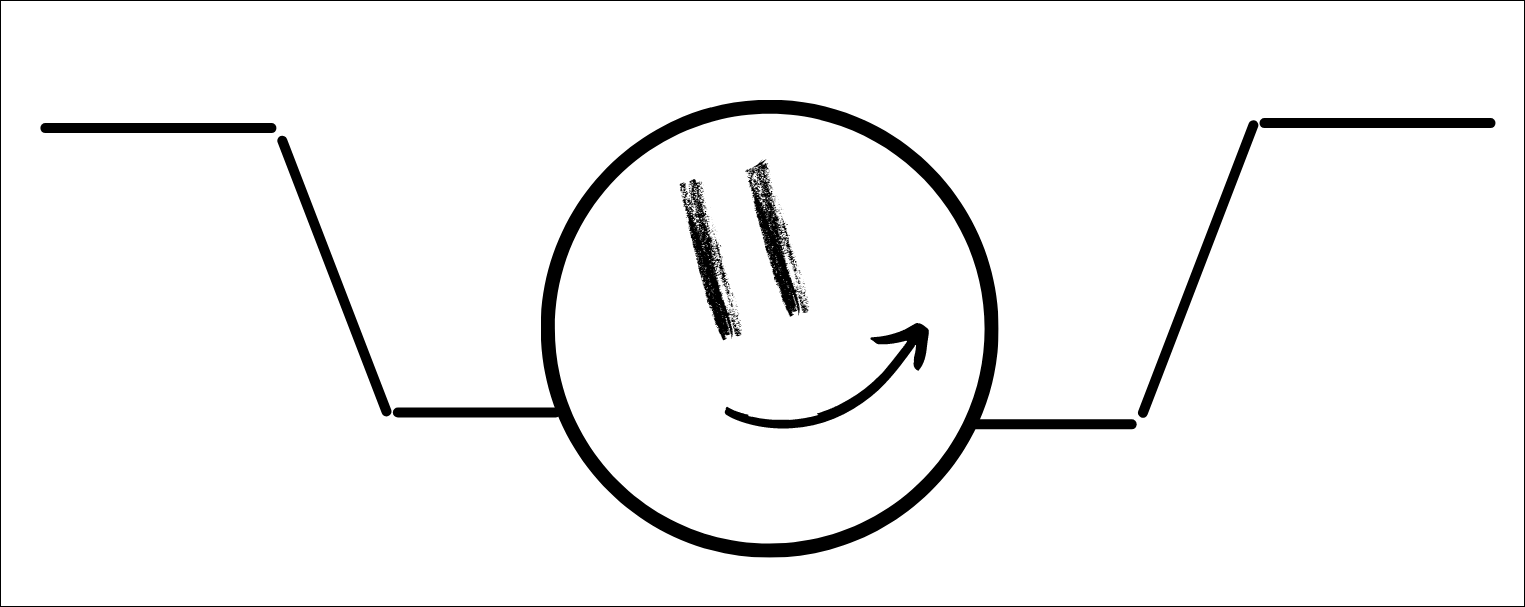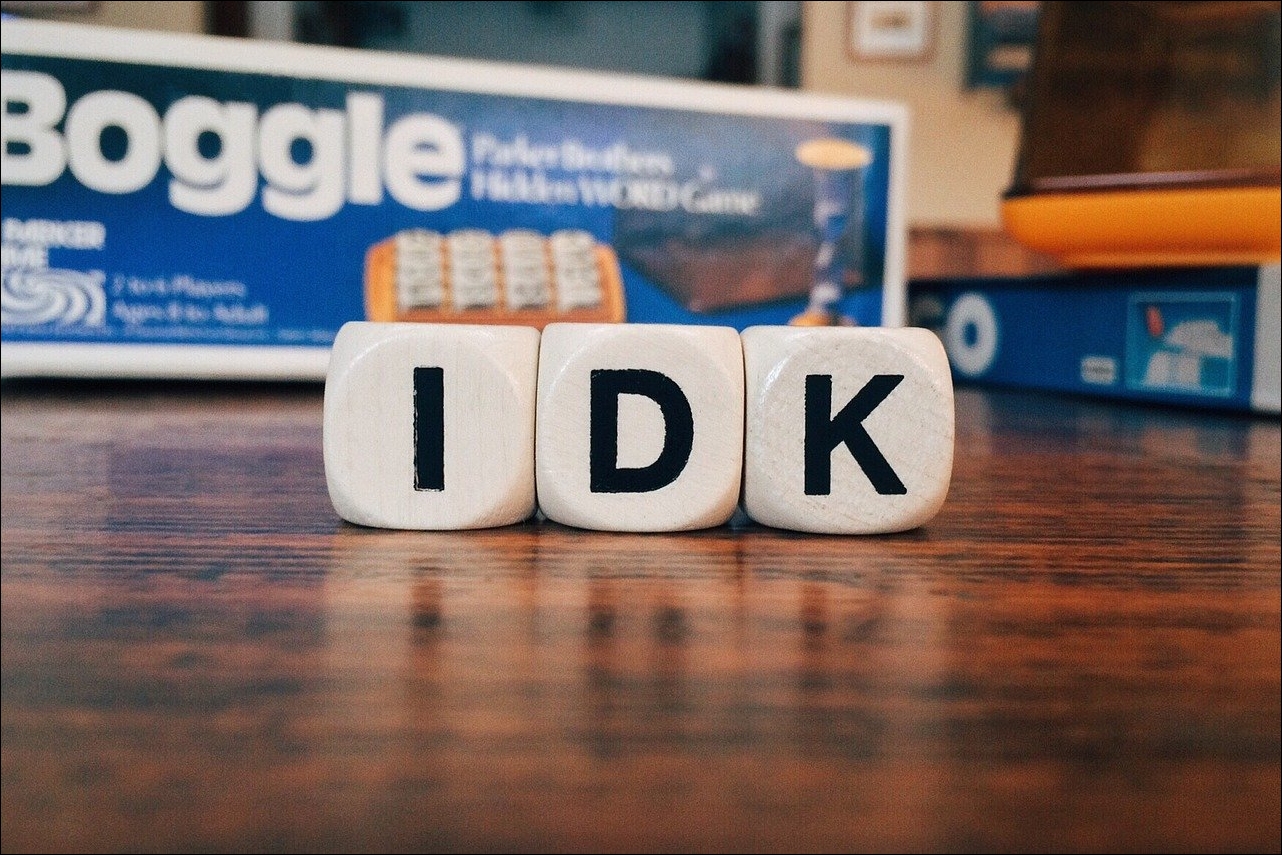What do you want to eat?
What’s wrong?
Where do you see yourself in 20 years?
What’s the capital of Canada?
We have answers for most questions but for some basic and some not so basic questions, we have the perfect answer. I don’t know. A simple response that keeps away further interrogation and makes things a lot clearer. This popular phrase answer in avoidance or ignorance became the sensational SMS slang — IDK.
Although the acronym has been in use for quite some time now, there isn’t a defined origin story for the SMS way of saying it. Over the years, IDK became an easier and faster way of expressing a lack of knowledge or disinterest in showing/sharing the same. Despite its founding oblivion, IDK doesn’t evoke judgment for not knowing.
What Does IDK Actually Mean?

Responding with “I don’t know” in real life, doesn’t necessarily imply an intellectual stance. Most times, it’s just a state of being uninvolved with certain aspects. When you’re asked about a friend, ‘I don’t know‘ means you’re not acquainted with their life enough to answer — for reasons as simple as inactive communication. It doesn’t mean that you’re unknowledgeable or ignorant of that friend!
Similarly, in the textual world, IDK has many implications. It doesn’t always suggest being uneducated about the topic. It can depict distance (emotional or physical), uncertainty, a state of being unsure, and a manner of questioning amongst many things.
Essentially, IDK refers to a situation that is pushed out of your conscious radar, voluntarily or involuntarily. IDK can be a choice, an obligation, or suspicion. Much like in real life, ‘I Don’t Know’, online is versatile.
Different Ways of Saying It

There are many ways to say you don’t know something — apart from just I don’t know. An added layer of poor knowledge, lack of concern, or increased disbelief can change our style of communicating the same. Certain words, when included in this popular phrase slightly change the conversation’s impact — without diverting from it’s essence.
IDEK – I Don’t Even Know
- What’s he up to these days?
I don’t know. - What’s he doing these days, then?
I don’t even know.
There’s a slight variation in the way both questions and their corresponding answers are framed. This variation changes the way the context is perceived. A variation of IDK is introduced in the second example – I Don’t Even Know (IDEK). This variation induces extra agitation, frustration, or even casual humor merged (or not) with sarcasm.
IRDK – I Really Don’t Know
What do you say when you swear on the fact that you’re unaware, disinterested, or completely ignorant about something or someone? I really don’t know. This is a variation that builds on the basic acronym IDK. It doesn’t deviate from it even in the slightest ways, like IDEK. There’s no change of voice when your use IRDK as it simply expands on IDK.
IHNI – I Have No Idea
IHNI is a whole new variation of IDK as it’s another way of saying I Don’t Know — but with an additional punch of irritation, humor, sarcasm, or belittling. This acronym, like all other variations, can accompany any context with the foundation of not being aware, not wanting to be aware, or just choosing to not share the awareness.
DK – Don’t Know
If you want to cut things even shorter, then DK is the alternative for you. We’re used to cutting words short for quicker communication and ‘Don’t Know’ is exactly the same we’re doing to the entire phrase ‘I Don’t Know’.
When you’re replying, it’s obvious that you are replying for yourself. So, it is reasonable to remove the obvious from the slang and keep it shorter and simpler. While using DK, make sure there’s any confusion about the context. Here’s what could go wrong:
- Where’s he?
DK - Does he know about it?
DK.
The first example is straightforward. You don’t know where he is. However, the second example is ambiguous. It could mean that you don’t know if he knows, or that he doesn’t know (Doesn’t Know is DK as well). In such situations, it’s advisable to be clear and avoid possibly misleading slangs such as DK.
This way you can remove the obvious from the above-mentioned acronyms but while making sure there’s no ambiguity in the context. Example, HKN (Have No Idea instead of I have No Idea) or DEK (Don’t Even Know instead of I Don’t Even Know).
How to Use IDK Correctly

To say you don’t know something/someone is as straightforward as it gets. There’s no hidden meaning to the acronym that could make it secretly offensive. IDK is one of the more popular internet slangs of the day along with acronyms like IDC (I Don’t Care).
There’s only one way to use this acronym and it is for when you’re unknowing of something/someone. The root of this oblivion could lie in interest, knowledge, or avoidance. Here are some examples of how you can use IDK:
- So, what’s the plan?
IDK. You tell me - Where are we going next?
Haha! IDK that for a while! - IDK why it is the way it is!
- Listen. What do you think of this?
IDK… Seems fine to me - idk what’s happening anymore.
It’s not necessary to use the acronym in capital letters.
Analysis
IDK is a simple way of saying you don’t know something, aren’t thinking/analyzing it just yet, don’t want to share knowledge, avoiding major or minor situation, don’t want to tackle things that are either too strenous or simply not in one’s circle of interests.
There’s no way you can go wrong with IDK apart from when you’re expected to provide substantial answers. Then, an ‘IDK’ can be wrecking since it incorrectly signifies a lack of interest when in reality, you’re probably just lazy to answer and thus avoiding it. Speaking of which, IDK also suggests avoidance that may or may not be intentional.
In this light, IDK must be used consciously. The acronym, though benign cannot be thrown around meaninglessly as it can create a flaky impression of the sender. So, if you want to create a dependable image, then you must limit IDK strictly to things you really don’t know and not use it to avert from the conversation.
Conclusion
The internet slang and acronym of ‘I Don’t Know’ is a harmless piece of SMS language. It’s best used to showcase pure lack of knowledge that may or may not brim from intelligence.
IDK can create the wrong impression when used in contexts other than innocent ignorance. Using this slang in circumstances that aren’t informal can be reputationally damaging. Conclusively, it is important to apply IDK when you really don’t know.

